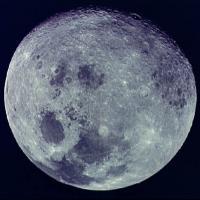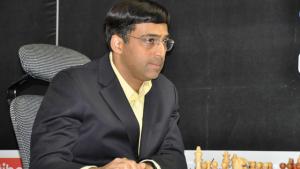
Chess and the Moon
It was the end of the Bulgarian Open – one year had passed since the times I described in my “Travelling Chess Player” series. This year it was not a successful tournament. It had started off with promise, but in the second half of the tournament I had blown several easily winning positions.
Luckily I had a good plan to forget the tournament. On my way to Bulgaria I had stopped in Belgrade, where I visited the offices of the Chess Informant. As it turned out, my friend GM Miroslav Tosic was in the city playing in a qualifier to the Serbian championship. We met at a café, and before he went to go play his game we decided that I would again visit his town, Svrljig, in the mountainous southern part of Serbia. It was on the way back from Bulgaria, so why not? I had visited there last May, and it was a very interesting trip. So rather than just mourning my lost opportunities in the Bulgarian Open, I looked forward to a few days of blitz, nice local food, and maybe some rakija (brandy).
Unlike last year, when in February the air was balmy and the sun was shining in Bulgaria, this year there was a big winter storm. Blankets of snow covered everything, and the air was ice-cold. This extreme cold was not only in Bulgaria, but in Serbia as well.
After a long, cold, and rather interesting trip to Svrljig, where I arrived at around 6 AM, Miroslav met me at the bus station. We went to one of the village’s cafes, where I had a burek (a kind of breakfast pastry which is very hard to describe) and some coffee.
In Svrljig the temperatures were getting down to around -22 Celsius (somewhere around -8 Fahrenheit). It is not a big town at all. It is nestled in the mountains – frosty stars stretched overhead and roads were covered with a blanket of snow. Miroslav has a small house where he has lived for years. There was no modern heating in there, but he had a wood-burning stove. However, it did not fully heat the house, and it had to be taken care of, because if it went out – that would be a big problem. This meant we could not stay long downtown, and made several trips a day on the frosty streets between the cafe, the local chess club, and his house.
The next days were spent playing blitz, drinking coffees or rakija at the café, and walking back to the house. Always on the radio was playing this traditional Serbian music, which I don’t hear as much in Novi Said – the singer’s voice wavers, the melody sounds Turkish, almost Middle Eastern. Then we are sitting at Miroslav’s table, at the chess board, looking at some chess position. We have some bread, and an onion, which you dip into salt before eating, maybe some soup. You can hear the fire making a sound almost like wind.
I asked Miroslav if he had written any books – he is a grandmaster and was champion of Yugoslavia, so I figured he should have had some chances to publish some chess books. I was very interested, because he is not the typical chess player. A lot of even quite strong modern chess players seem to see chess like a sport, study opening theory, and otherwise don’t have much in the way of intellectual ideas. Miroslav is different, he has some interesting religious and philosophical views. He is not a modern chess player at all – unlike scores of young GMs, he does not spend hours rapidly playing through games on the database, or playing ICC blitz – in fact, he doesn’t even have a computer.
So I was very interested to see any book he wrote. He brought out a spiral-bound notebook where he had written a manuscript – it hadn’t been published. In it I saw that there was a combination of chess middlegame theory and some spiritual and philosophical thoughts. Of course, it was not so easy for me to read, since my Serbian is not quite good enough for such complex subjects. He had written it in 1986.
“Absolute zero, the point where motion stops”. Yes, I knew that – “of course, minus two hundred seventy three,” I said. We were walking between his house and the town center, a fifteen minute walk. Absolute zero is where nothing moves at all – it is not something, it is the lack of something. But you would feel that nothingness because it would kill you instantly. It seems so close – water boils at +100 Celsius, while a candle burns at around +1000 Celsius. Yet absolute zero, only -273, has never been reached by scientists.
Svrljig in the dead of winter looked like it could be the moon. Everything was covered in white snow, like moon dust. We were high up in the mountains, making it seem like another world. It was beautiful, but also cold and remote.
Back in the house, I made these moves on the board:
1.d4 Nf6 2.c4 g6 3.Nc3 Bg7 4.e4 d6 5.Nf3 0-0 6.Be2 e5 7.0-0
“How do they play on the moon? 7…exd4?” I asked. It didn’t look like the way to go. After looking for some time, it became hard to believe that the black position would last as long as a moon rock. Black surely has some counterblows here, but against the right order of moves, it looked unhealthy.
After a few days in Svrljig, I got on the bus, travelled through the jagged mountains, and back to Novi Sad. But clearly the moon was where you should go to forget a bad chess tournament. Or, in my case, six bad tournaments in a row.
Here was perhaps my best attempt at lunar chess, where the position in the middlegame resembles the fractured face of the moon and the violence of millions of meteorites:






